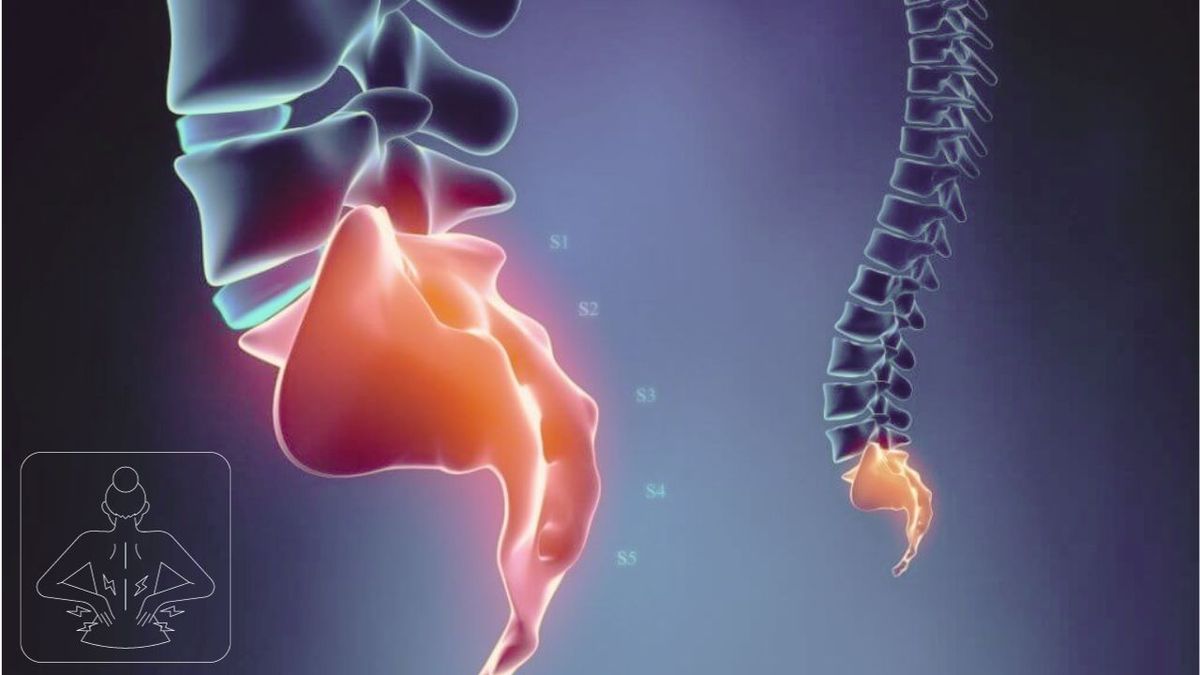How Do I Know If My Back Pain Is Serious?
If your pain persists for more than six weeks, radiates down your leg, or is accompanied by additional symptoms, it's time to consult with a healthcare professional.

Back pain is a common ailment that can range from a mild inconvenience to a debilitating condition. While most cases of back pain are temporary and improve with time, it's essential to recognize when your back pain might be a sign of a more serious underlying issue. In this article, we'll explore various factors and signs to help you determine if your back pain warrants serious attention.
How Do I Know If My Back Pain Is Serious?
These are some key points that will let you know if your tailbone is serious:
See your doctor for further advice if:
- Pain bothers you
- Pain doesn't improve after a few weeks or gets worse
- Symptoms such as weight loss, tingling, or numbness in the legs
- Problems with bladder and/or bowel control
Duration of Pain
Most cases of back pain improve within a few days to a few weeks. If your back pain persists for more than six weeks, it could indicate a chronic issue or an underlying medical condition. Chronic back pain may require a more in-depth evaluation by a healthcare professional.
Pain Intensity
Mild to moderate discomfort is common and often related to muscle strain or tension. Severe, unrelenting pain or pain that worsens over time may be indicative of a more serious condition, such as a herniated disc or spinal stenosis.
Pain Radiation
Localized pain in the back is typical for muscle-related issues. Pain that radiates down the leg or arm, known as sciatica or radiculopathy, may be a sign of nerve compression and requires prompt medical attention.
Trauma or Injury
Back pain following a minor injury or overexertion is common. If your back pain follows a significant trauma, such as a fall or car accident, it's crucial to seek immediate medical attention to rule out fractures or other serious injuries.
Other Symptoms
Back pain without accompanying symptoms may be less concerning. If you experience additional symptoms such as fever, unexplained weight loss, or bladder/bowel dysfunction, it could indicate an underlying systemic or neurological issue. Immediate medical evaluation is recommended.
Limited Mobility
Some restriction in movement due to muscle strain is expected. If your back pain significantly limits your range of motion or if you experience difficulty walking, it could be a sign of a more severe condition requiring medical attention.
Previous Medical History
Occasional back pain without a history of serious conditions is typical. If you have a history of cancer, osteoporosis, or other chronic illnesses, any new or worsening back pain should be promptly addressed with a healthcare professional.
FAQs
Q: How long should I wait before seeking help for my back pain?
A: If your back pain persists for more than six weeks or is accompanied by other concerning symptoms, it's advisable to consult with a healthcare professional. Early intervention can prevent potential complications.
Q: What does it mean if my back pain is radiating down my leg?
A: Radiating pain down the leg, known as sciatica, suggests potential nerve compression. This can be a sign of a more serious issue, such as a herniated disc, and should prompt a visit to a healthcare provider for further evaluation.
Q: Can a recent injury or trauma cause serious back pain?
A: Yes, if you've experienced a significant trauma like a fall or car accident and are now experiencing back pain, it's crucial to seek immediate medical attention to rule out fractures or other serious injuries.
Q: Is it normal to have limitations in movement with back pain?
A: While some restriction in movement is expected with muscle-related back pain, significant limitations in range of motion or difficulty walking may indicate a more severe condition that requires medical attention.
Q: When should I be concerned about additional symptoms of my back pain?
A: If you experience symptoms like fever, unexplained weight loss, or bladder/bowel dysfunction along with back pain, it could be indicative of an underlying systemic or neurological issue. Seek medical evaluation promptly.
Q: Can previous medical conditions contribute to serious back pain?
A: Yes, if you have a history of conditions like cancer, osteoporosis, or other chronic illnesses, any new or worsening back pain should be addressed promptly with a healthcare professional to rule out potential serious complications.
Q: Is all back pain a sign of a serious problem?
A: No, many cases of back pain are temporary and not indicative of a serious issue. However, if your back pain is persistent, severe, or accompanied by specific warning signs, it's important to consult with a healthcare professional for a thorough evaluation and appropriate guidance.
Key Takeaways!
While many cases of back pain resolve on their own or with conservative measures like rest and over-the-counter pain relievers, it's crucial to be vigilant about signs that may indicate a more serious issue. If you're unsure about the severity of your back pain or if it persists despite home remedies, consulting with a healthcare professional can help diagnose the underlying cause and guide you toward appropriate treatment. Remember, early intervention is key to managing and preventing potential complications associated with serious back conditions.
,
